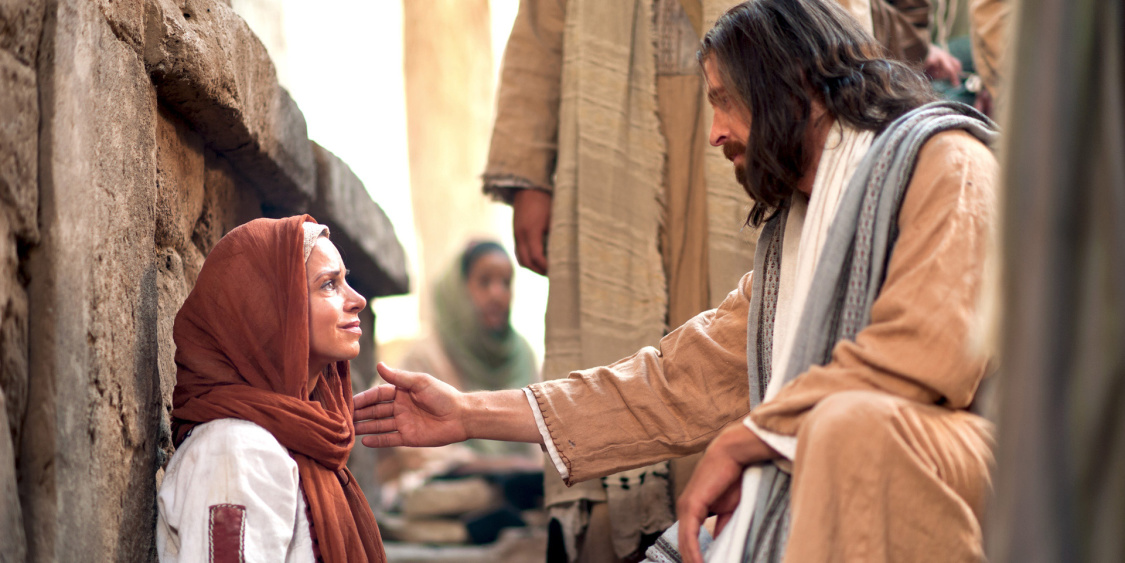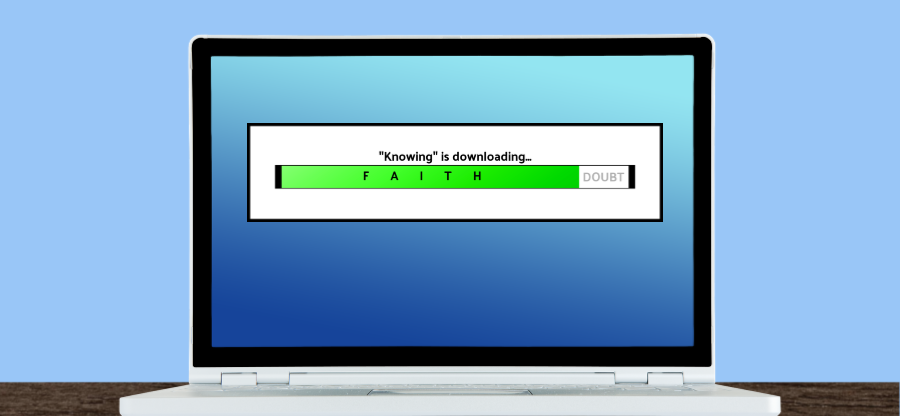Why Doubts Shouldn’t Be Freaking Latter-day Saints Out
We need water to live. Thankfully, God has provided us water. That said, too much water can kill you. Too little water, and you’re still dead. Only a healthy amount of water (which, fun fact, is apparently about two liters per day) will keep you alive. The same principle applies in many other arenas of life, whether physical, emotional, or spiritual. This article explores how appropriate levels of doubt can keep us spiritually healthy.
Disclaimer: This is a heavily nuanced subject. Surely, faith, knowledge, and doubt have several different meanings and philosophies attributed to each of them. I don’t propose that this perspective is absolute truth across all interpretations and usages of these terms, nor is my method the only way of looking at things. That said, I believe there is great value in the following principles…
Opposition in all things?
We talk about opposition a lot in The Church of Jesus Christ of Latter-day Saints. We fully recognize both the difficulty and the necessity of opposition. Our scriptures teach,
It must needs be, that there is an opposition in all things. If not so, … righteousness could not be brought to pass, neither wickedness, neither holiness nor misery, neither good nor bad.
Happiness cannot exist without sadness.
Light is nothing without darkness.
Tall people wouldn’t be “tall people” without short people to compare to.
But “opposition” goes beyond mere “opposites.”
A strong headwind opposes the ship struggling to sail forward.
Gravity opposes your leap into the sky.
A wildfire opposes the growth of a forest.
Opposition is difficult to deal with (that’s kind of the point). And yet, there is a divine purpose for opposition. It’s not just God’s way of torturing His creations. It’s God’s way of teaching and strengthening His creations.
Used appropriately, wind is what powers a sailboat.
Used to our advantage, gravity is what makes flight possible.
Likewise, doubt may challenge and oppose faith, but it’s true purpose may be to enable faith to take flight. It’s true, though, that if we mismanage our relationship with doubt, it can obliterate faith. If we don’t respect the wind, it can sink a ship. If we don’t interact appropriately with gravity, planes crash. But the purpose of this article is not to outline the harmful nature of doubt among Latter-day Saints (or any believers, for that matter). We’re all well aware of that side of things. In fact, we each probably know someone whose doubt drove them away from, or even against their former faith.
My goal is quite the opposite. Doubt can be a good thing. It can help shape, strengthen, and purify our faith. We shouldn’t pretend it doesn’t exist, but we also shouldn’t have a panic attack when it knocks on our front door. Instead, we need to develop a healthy relationship with it. Because faith means nothing without doubt to oppose it.
Side-note: When does a question become a doubt, or vice versa? What’s the difference between the two? Frankly, I think the answer is subjective and I won’t attempt to answer it in this article, but it’s a good question to keep in mind as you apply this philosophy to your life.
The forest
You might have noticed earlier that I never resolved the forest fire example from my list of things that experience opposition. I want to give it special attention because I recently read something incredible about forest fires in a delightful blog post called, The Divinity of Doubt: A Letter to Those Who Struggle to Believe. In fact, I’ll be quick to admit that this entire article was inspired by that post. Check it out. Here’s what the author, Joe Terrell, had to say about forests:
If a forest goes too long without a good burn, the foliage begins to choke out sunlight necessary to support further growth along the forest floor. Dead trees and plant matter contain important nutrients that can benefit the soil after they’re reduced to ash.
Fires burn out dangerous invasive species and clear up weeds. In fact, some trees have fire-activated seeds that can only germinate after a wildfire.
Our faith can work the same way. Every now and then, it’s okay – perhaps even beneficial – for a fire to burn through all of our accumulated ideas and opinions about God that may not be doing us much good anymore.
God has a history of using otherwise painful things to make us better. In fact, in Revelation 3:19 the Lord declared, “As many as I love, I rebuke and chasten.” Being chastened can hurt, but it’s necessary. Recognizing a healthy amount of doubt into our lives can also hurt, but it can also humble and refine.
https://www.instagram.com/p/Bs24b9kBjaz/
Fire can harm you or help you. It can burn you or light your way. Likewise, doubt can harm you or help you. And remember that not everything that hurts is necessarily harmful in the long run. Elder Dale G. Renlund recently said,
Doubt is not wrong unless it becomes an end in and of itself. That doubt which feeds and grows upon itself and breeds more doubt, is evil.
Again, the same can be said of fire. Lighting a fire is not bad, unless lighting everything on fire becomes an end in and of itself. That fire which feeds and grows upon itself and breeds more fire, is evil. But if the fire is clearing away misconceptions and planting new seeds of faith, let that thing burn.
We suffer from a misconception in the Church that just because doubt exists in someone’s mind (by definition, “a feeling of uncertainty“), that person must not believe, period. We label doubt as bad and any level of it as faithless.
I challenge that idea, as did Elder Renlund. Doubt exists on a spectrum. When it comes to the divinity of The Book of Mormon, for example, I have a lot of faith and very little doubt. In other words, while “doubt” exists, I don’t doubt that The Book of Mormon is what it claims to be, because my faith far exceeds my doubt.
On the other hand, was the historic Priesthood ban God’s will? In that arena, I probably have a little more doubt than faith. That doubt hasn’t destroyed my testimony of the restored gospel. On the contrary, I believe it has shaped my perception and faith in modern prophets into something truer than it used to be. Thus, doubt led to greater enlightenment and a stronger testimony, in my opinion.
A word on “knowing”
In addition to opposition, we also talk about “knowing” in the Church. You know what I’m talking about. “I know the Church is true, I know Joseph Smith was a prophet, I know X, Y, Z.”
I have nothing against an “I know” testimony. We can have a sure knowledge, or witness of spiritual truths. Moroni 10 promises us that. Having a sure knowledge of spiritual things is a goal everyone has. And surely the scriptures also teach that,
To some it is given by the Holy Ghost to know that Jesus Christ is the Son of God … To others it is given to believe on their words, that they also might have eternal life …
Knowing and believing are both great. But in many Latter-day Saint communities we’ve nurtured a culture where oft times we say “I know” when in reality we mean, “I believe.” There’s a very huge difference between the two terms. Their relationship with doubt is different. On the loading bar marked “Knowing,” doubt is the negative space that faith does not yet occupy. When that loading bar is full and knowledge is achieved, there’s no natural place for doubt (which makes it all the more threatening to an “I know” testimony). Where faith exists, a measure of doubt will exist. If it doesn’t, it’s knowledge, and “faith is dormant.”
The scriptures teach that we “receive no witness until after the trial of [our] faith” (Ether 12:6). Maybe that “trial of [our] faith” is doubt (in its many forms) and its constant tug-o-war with faith.
Luckily, Christ asks for faith, not knowledge. In fact, it’s the first principle of His gospel.
“For by grace ye are saved through faith…” (Ephesian 2:8).
“For salvation cometh to none such except it be through repentance and faith…” (Mosiah 3:12).
“Without faith ye can do nothing; therefore ask in faith…” (D&C 8:10).
I interpret Christ’s emphasis on faith as implicit acceptance of a certain measure of doubt. If that’s true, it’s OK to have questions, it’s OK to have doubts, it’s part of having faith, which means it’s all part of the plan.
What I’m NOT saying
I don’t advocate for feeding our doubts or purposefully seeking them out. I advocate for dealing with them when they inevitably arise until either our faith out-weighs our doubts, or our doubts refine our faith. I’m not going to pretend like that isn’t a risky thing to do. Similar to opposition in most any form, it poses a threat. It can hurt tremendously. Maybe that’s why the scriptures ask us to “work out your own salvation with fear and trembling.”
But the thing is, this is The Church of Jesus Christ of Latter-day Saints. If the gospel is true (which I believe it is), then approaching doubts in a spiritually mature fashion, with the right perspective, will simply be a refiner’s fire for your faith. It’s going to burn off the dross. Everything left will be pure truth.
In a faith-based gospel, we shouldn’t be afraid of the accompanying doubt. Of course, as President Uchtdorf encouraged, we should doubt our doubts before we doubt our faith. In other words, instead of doubting our faith, we should learn to … faith our doubts (eloquent, eh?). Pretending those doubts do not exist, or just trying to sweep them under a rug until you’re faithfully dead is not the appropriate way to handle them. The problem is not the existence of doubt, but rather what we choose to do with that doubt.
So, how do you harness doubt in a constructive way?
The scriptures teach that Christ can use our weaknesses, and “make weak things become strong” for us. I can’t tell you how that happens in your situation, because I don’t know what your weaknesses are. Likewise, I don’t know what your doubts are. You do. When they surface, know that you don’t have to flee from them, just as you don’t have to feed them. Take them to God (not just Google, like we’re used to) and discover with Him how your doubts can become the wind in your sails.








